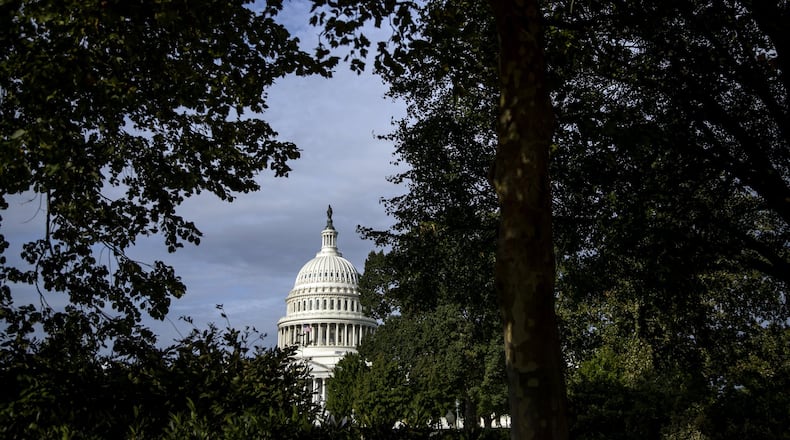As a blue city in the heart of a red state, Atlanta is a melting pot of political and cultural values. As a result, differences in opinion among neighbors, friends and colleagues can be stark, and politically charged conversations are bound to occur – even at our workplace.
Politics has always been a delicate subject in the workplace, but this has been amplified recently by the current political environment and heightening rhetoric about presidential impeachment. A divided nation can translate into a divided workplace in which awkward political conversations with coworkers interrupt the workday, reduce productivity, impact the quality of customer service and damage reputations.
So what are companies and employees to do? The following do’s and don’ts should serve as a reminder of how to appropriately engage (or not engage) in political conversations on the job.
Do: Know your employer’s rules.
There are no First Amendment rights in a private workplace. Private employers, and to a lesser extent, public employers, have a right to enforce limitations on political speech at work. Employers have a legal responsibility to prevent employees from creating a hostile work environment for other employees, and that sometimes means that employers must set boundaries on acceptable communications in the office. Rules must be non-discriminatory and ensure conversations that offend employees on the basis of national origin, race, religion, sex, age, or disability are not tolerated under any circumstances.
Additionally, many employers have guidelines that prohibit wearing political clothing or bringing campaign material into the office. Think twice before donning a “Make America Great Again” t-shirt on casual Friday or securing a Bernie sticker to your cubicle. Even if it’s not against the rules, it’s best to avoid controversy by saving your campaigning for nights and weekends.
Don’t: Let your guard down after hours.
After a drink or two at happy hour, it might be tempting to share your feelings about the most recent presidential debate or a government official’s political gaffe with your colleague. Even if you think you know your associate’s point-of-view on an issue and feel comfortable sharing, it’s best to proceed with caution. Your personal politics can quickly change someone’s opinion of you and your work. Offending someone can damage the reputation you’ve built for yourself, even if it occurs outside of normal working hours.
Do: Keep it friendly.
A little political talk at the water cooler or lunch table is to be expected, especially during an election cycle. It’s okay to engage, as long as conversation is amiable and lighthearted. Ask non-confrontational questions and keep an open mind, expressing your sincere interest in hearing your coworker’s views. By taking this approach, you might even learn something new.
Don’t: Address heated issues.
There are some topics that will never be suitable for work. For example, engaging your coworkers in a discussion on Georgia’s heartbeat bill – pro-life legislation that would prohibit abortion after a fetal heartbeat can be detected – will almost certainly place you in a heated debate that has no place in the office. Hot-button issues such as abortion, gun violence and immigration should be avoided entirely.
Do: Know when to walk away and agree to disagree.
When emotions run high, a political disagreement can deteriorate into personalized attacks. If it becomes clear that an exchange is getting too confrontational or causing a disruption, it’s time to walk away. Convincing a colleague to see your point of view is less important than maintaining your professionalism in your workplace. In some cases, you may recommend changing the subject or suggest the need to get back to work. In other cases, you may need to be more direct by telling your colleague, “Let’s agree to disagree.”
Don’t: Assume you’re off the clock on social media.
Social media has become an important aspect of building and sustaining relationships, including professional ones. Consider the implications of overtly political or inflammatory social media posts and imagine your coworkers’ reactions before you share. Employers can and do make employment decisions based on an individual’s online activity. Georgia is an employment-at-will state, which means an employer or employee may generally terminate an employment relationship at any time and for any reason, with exceptions based on federal or state laws, collective bargaining agreements and employment contracts.
It has perhaps never been more challenging to have a polite political discussion. As the 2020 election cycle heats up, employers may need to clarify their position on political discussions in the workplace to prevent divisive and potentially harmful encounters. If you’re unclear on your employer’s stance on political dialogue in the office, the best course of action is to ask for clarity and approach all workplace conversations with common sense and respect.
Joseph Chancey is an employment law attorney and managing partner of Atlanta law firm Drew Eckl & Farnham.
About the Author
Keep Reading
The Latest
Featured



